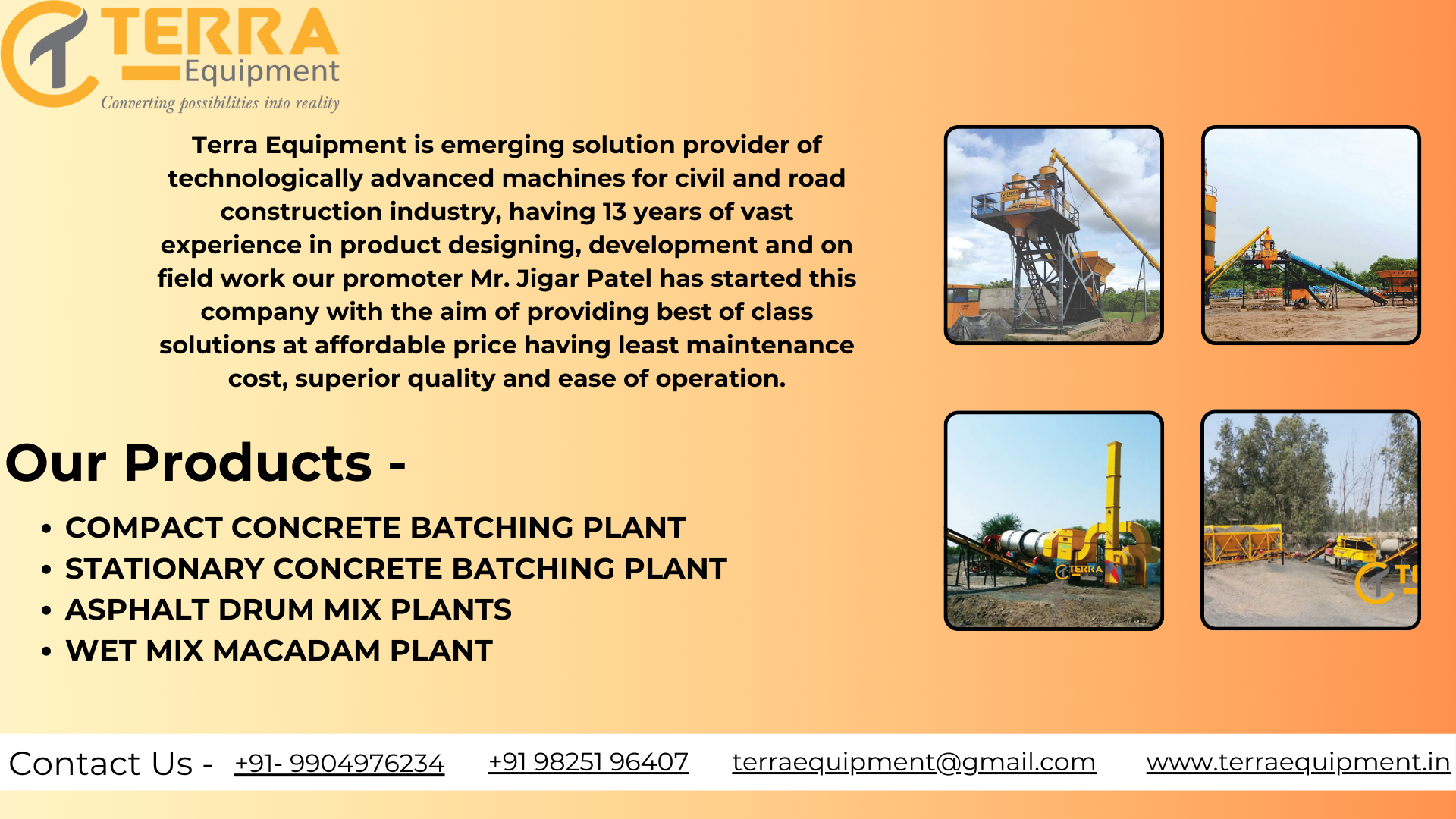Concrete Batching Plant
Description:
A Concrete Batching Plant is a specialized facility used to combine various ingredients to form high-quality concrete. The plant ensures precise mixing of materials such as cement, sand, aggregates, water, and admixtures to produce concrete consistently and in large volumes. It is vital in modern construction where uniformity and speed are critical.
How Itís Made:
Manufacturing a concrete batching plant involves the following key stages:
-
Design & Engineering: CAD tools are used to create detailed designs based on required capacity and configuration (stationary or mobile).
-
Steel Fabrication: Components like silos, bins, frames, mixers, conveyors, and structures are fabricated from heavy-duty steel.
-
Machining & Welding: Precision machining of moving parts such as mixer shafts, paddles, and gearboxes. Welding of silos and supports ensures structural strength.
Electrical Wiring & Panels: Custom control panels, safety devices, and sensors are fitted.
-
Assembly & Testing: The plant is assembled, calibrated, and tested for efficiency, safety, and output accuracy.
Where Itís Used:
-
Infrastructure Projects (Bridges, Dams, Highways)
-
Residential & Commercial Building Construction
Industrial Concrete Precast Units
-
Airport Runways & Railways
-
Metro and Urban Infrastructure
Key Features:
-
High-Capacity Mixers (Pan/Planetary/Twin Shaft)
Cement & Fly Ash Storage Silos
-
Weighing Systems for Precise Material Input
-
Water & Additive Measuring Units
-
Control Panel (Manual/Semi/Full Automatic)
-
Conveyor Belts and Skip Hoists
-
Dust Collectors & Pollution Control Mechanisms
Importance:
A concrete batching plant ensures consistent quality, faster production, and accuracy in mix design, which is essential for modern construction standards and large-scale projects.
Advantages:
-
Consistent Concrete Quality
-
Faster Construction Time
-
Custom Mix Designs Possible
-
Reduction in Material Wastage
-
Automated Operation Improves Safety
On-site and Central Mix Options
-
Environment Friendly (Dust Control Systems)
Significance:
Concrete batching plants have become essential in todayís construction industry as they bridge the gap between speed and structural strength, offering reliability in mix production and sustainable site management.
Why to Choose a Good Manufacturer:
-
Robust Engineering with Quality Steel
-
Custom Configuration Options
-
High Accuracy Load Cells and Controls
After-Sales Support & Spare Parts Availability
-
On-Site Installation & Training Services
-
Versatility in Batch Size and Type (Mobile/Stationary)
FAQs:
Q1. What capacity options are available?
A: From 15 m≥/hr to 120+ m≥/hr depending on plant type and demand.
Q2. Is it suitable for on-site use?
A: Yes, mobile batching plants are designed for on-site fast relocation.
Q3. Can it handle admixtures or special additives?
A: Yes, modern plants include dosing systems for additives and admixtures.
Q4. What type of mixer is best?
A: Twin shaft mixers are ideal for high-performance concrete; pan mixers are preferred for precast.
Q5. Does it require civil foundation?
A: Stationary plants do, but mobile plants come with skid-mounted or compact designs requiring minimal civil work.
Conclusion:
A Concrete Batching Plant is a vital investment for any construction project aiming for quality, efficiency, and scale. It automates concrete production, ensures material control, and significantly improves project timelines. Choosing the right manufacturer means getting durability, automation, and performance assurance, making it a foundation for modern infrastructure growth.
Contact:-+91-9825196407 , +91-9825196407
Gmail:-terraequipment@gmail.com
Website:-https://terraequipment.in/

